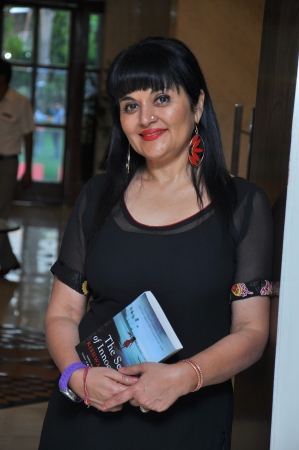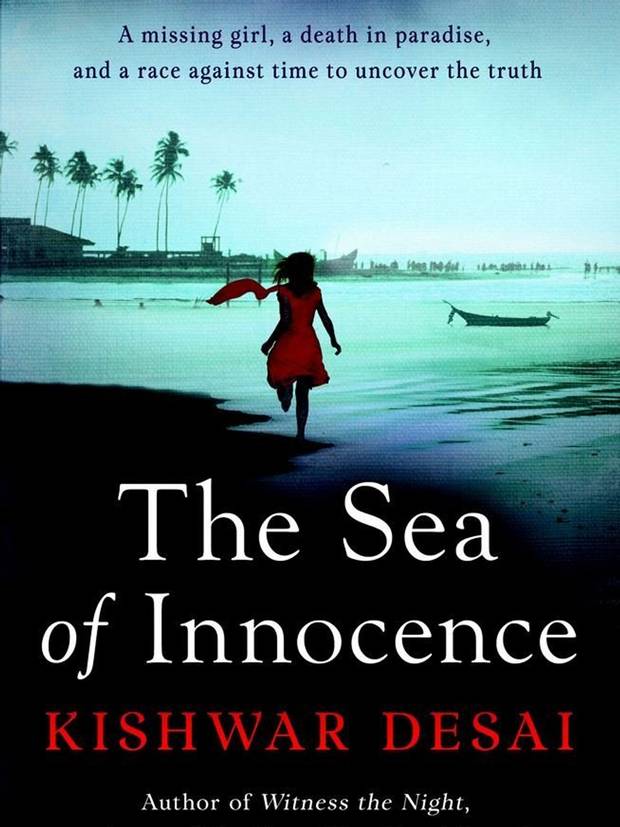 I recently had the pleasure of interacting with award-winning author and former print and TV journalist Kishwar Desai.
I recently had the pleasure of interacting with award-winning author and former print and TV journalist Kishwar Desai. Her novel, Witness the Night (Harper Collins, India and Beautiful Books, UK, 2010) won the Costa First Novel Award and was long listed for the Man Asian Literary Prize and long listed for the DSC South Asian Literary Prize, among others. The story of social worker Simran Singh explored the issue of female foeticide and infanticide in India. It has been translated into over 25 languages.
Her critically acclaimed second book in the Simran Singh series The Origins of Love was published in June 2012. It examines the growing commercialisation of Artificial Reproductive Technology (ART). This has become a huge international business and a very exploitative industry, led by the medical profession trying to “help” infertile couples.
She has recently finished her third and the last book in the Simran Singh series, which is set between Goa and the UK, and deals with the brutal death of a teenager on a Goa beach.
Kishwar Desai is deeply interested in Indian cinema. She writes columns and is also a member of the Steering Committee of the International Film Festival of India. She is married to economist Meghnad Desai, a member of the British House of Lords. She lives between London, Delhi and Goa—travelling all too frequently!
Please tell us about your books; some anecdotes perhaps, of how they happened.
My first book, Darlingji: The True Love Story of Nargis and Sunil Dutt, was something my husband, Meghnad and I had discussed as a book we would do one day, together, as we are both very interested in Indian cinema. And, after we met Sunil Dutt, we even started planning it. However, very soon after, Meghnad became busy in the UK Parliament, and I ended up doing the research and writing the whole book by myself! The trilogy of novels featuring the social worker cum detective Simran Singh, on the other hand, was something I had wanted to write for a long time. Especially the first book, Witness the Night. It evolved out of a chance meeting with a woman who told me how she had survived an attempt by her family to kill her as a new-born baby. As a journalist I had written about female foeticide–but this woman’s story was so moving I wanted to make it into a film. At that time I was working in TV. So after writing Darlingji, I sat down to write a film outline for Witness the Night–and it grew and grew into a book. And then my publisher liked Simran Singh so much I was asked to write a second and a third.
 ...
...Any pitfalls of being an attractive female writer, and being married to another famous personality?
Thanks for the compliment! I haven’t noticed any pitfalls—but then I don’t think there are any advantages either! After all, writing is very hard work—looks don’t matter! Being married to a famous author means that one can be overshadowed, and I used to be worried about that—but fortunately since my books are very different from the kind that Meghnad writes—I have managed to retain my own identity.
We live in a market economy. How has that changed writing and publishing?
Well, all authors want to write books on subjects they are passionate about. So far, it has been very good for people like me. But I can see that there is a lot of pressure now ( when we see how bestsellers have been ‘created’ and ‘sold’ in India) on writers to go out more, interact with the trade and marketing personnel—which did not happen before. Social media has also become very important. All of this is very time consuming—and I suppose writers like me who want to be a little reclusive will have to try harder to learn all these new ‘techniques’. But I still hope that ultimately if a book is good, it will sell.
The detailed interview is published in Kitaab

